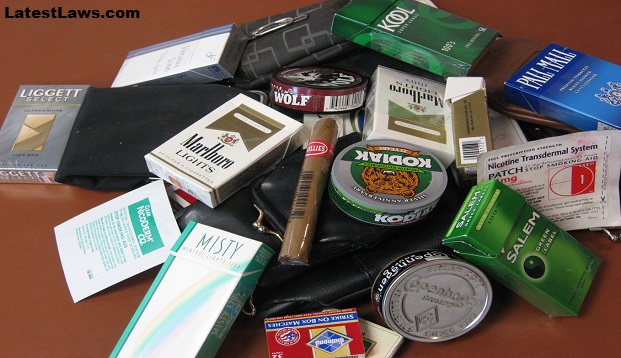December 17, 2018:
India will track the movement of tobacco products in the country to curb tax evasion & illicit trade, and meet the World Health Organization’s protocol.
Officials from the ministries of finance and health have already met once on the WHO’s Framework Convention on Tobacco Control, a senior official aware of the development told BloombergQuint requesting anonymity as he is not authorised to speak to the media.
The panel will continue to deliberate on creating a nodal body that will be in charge to implement the changes, and also identify amendments needed in the law.
The official said such a change will take around three years. India is studying a model implemented by countries like Kenya, Brazil and Turkey.
The WHO requires countries to establish a tracking and tracing regime within five years of becoming signatories to the protocol.
Legal cigarettes account for only 11% of the tobacco consumed in India, according to the Tobacco Institute of India whose members account for nearly all the legal sales.
Illegal cigarettes—comprising smuggled and locally made ones on which tax is not paid—account for around a fourth of the cigarette industry, it said. That results in an estimated ₹13,000-crore revenue loss for the govt. each year at current rates.
Tobacco tracking will be positive for companies that are tax compliant, Pinakiranjan Mishra, partner and national leader-consumer products and retail at EY, told BloombergQuint. “Businesses are impacted by spurious imported products on which duty is not paid, and this will also help the government in earning more tax revenue.”
In India, 90% of the consumption is in the form of chewing tobacco, beedis, khaini, and illegal cigarettes. This is unlike rest of the world where tobacco is synonymous with cigarettes representing 90 percent of sales. A key reason for the smaller share of cigarettes in the country, according to the tobacco institute, is high tax—up to 51 times more than other products.
Smugglers of global brands seek overseas markets with attractive tax arbitrage and move consignments through land and sea, said Syed Mahmood Ahmad, director at Tobacco Institute of India, in an e-mail to BloombergQuint.
“India with its punitive taxation on cigarettes provides lucrative prospects and is a preferred destination for smuggled cigarette trade operators.”
Contraband consignments are rarely identified and the country of manufacture is not stated, according to Ahmad. That makes it impossible for probe agencies to take help of other countries to prevent the illegal trade, he said.
In India, legal cigarettes can be easily identified from the smuggled ones because of large warnings covering 85% of both sides of the pack. Despite that, he said, enforcement agencies are unable to contain the growth in illegal trade.
The WHO Illicit Trade Protocol will succeed in checking smuggling only when countries from where illegal cigarettes enter India implement the protocol and tracking systems, said Ahmad. And unless inputs are shared in real time, India will be unable to meet the objectives of the protocol, he said.
However, Mishra said rolling out the tracking & tracking system will take time but it’s a right move in the larger interest of the govt. and the industry.
According to Ahmad, a track and trace system will increase the cost base for domestic cigarette makers. That, he said, would only increase the margin for smugglers. “It is the smuggled international brands and the accompanying global illegal cigarette trade that requires monitoring and surveillance.”
Source Link
Picture Source :

























